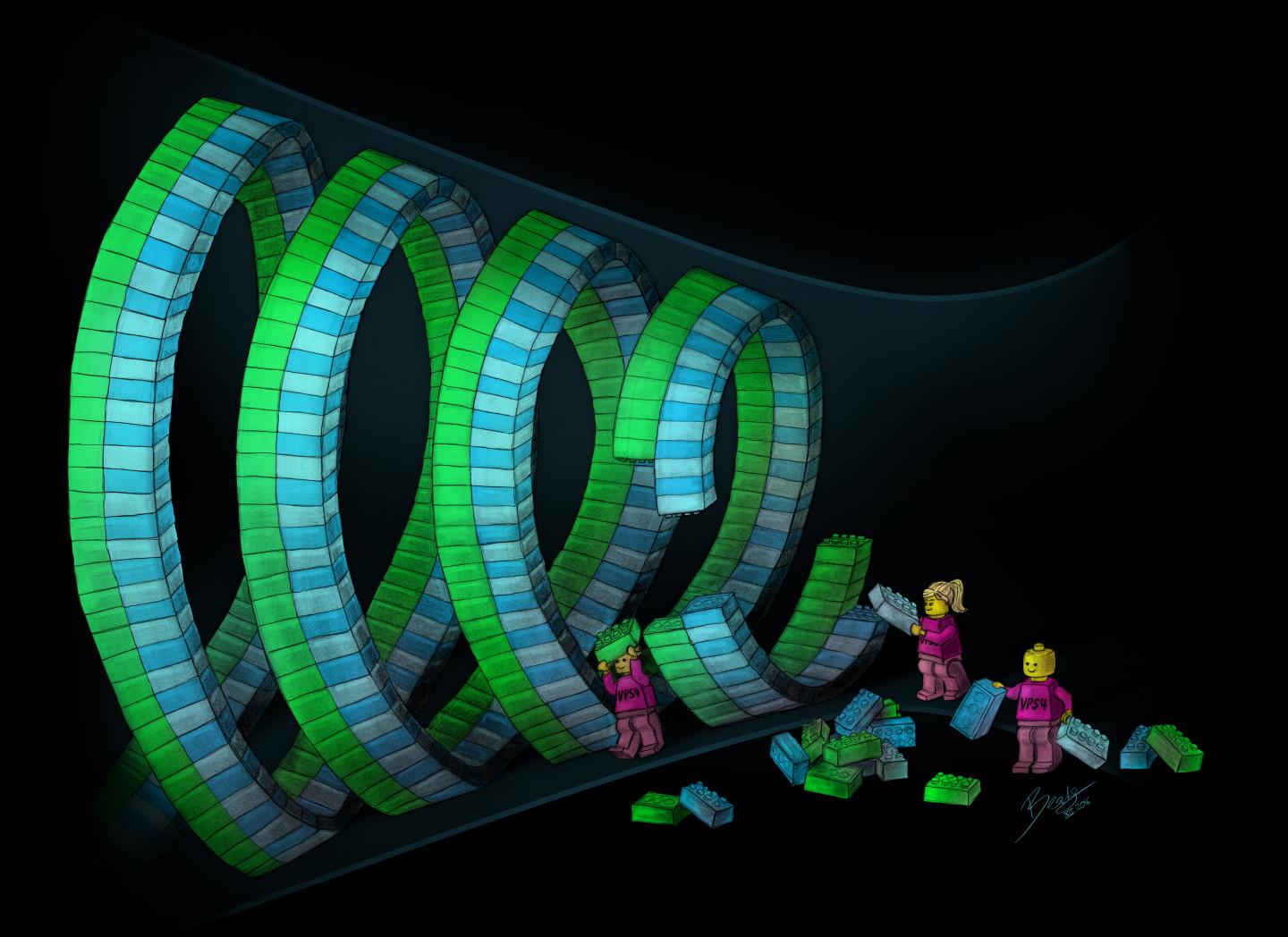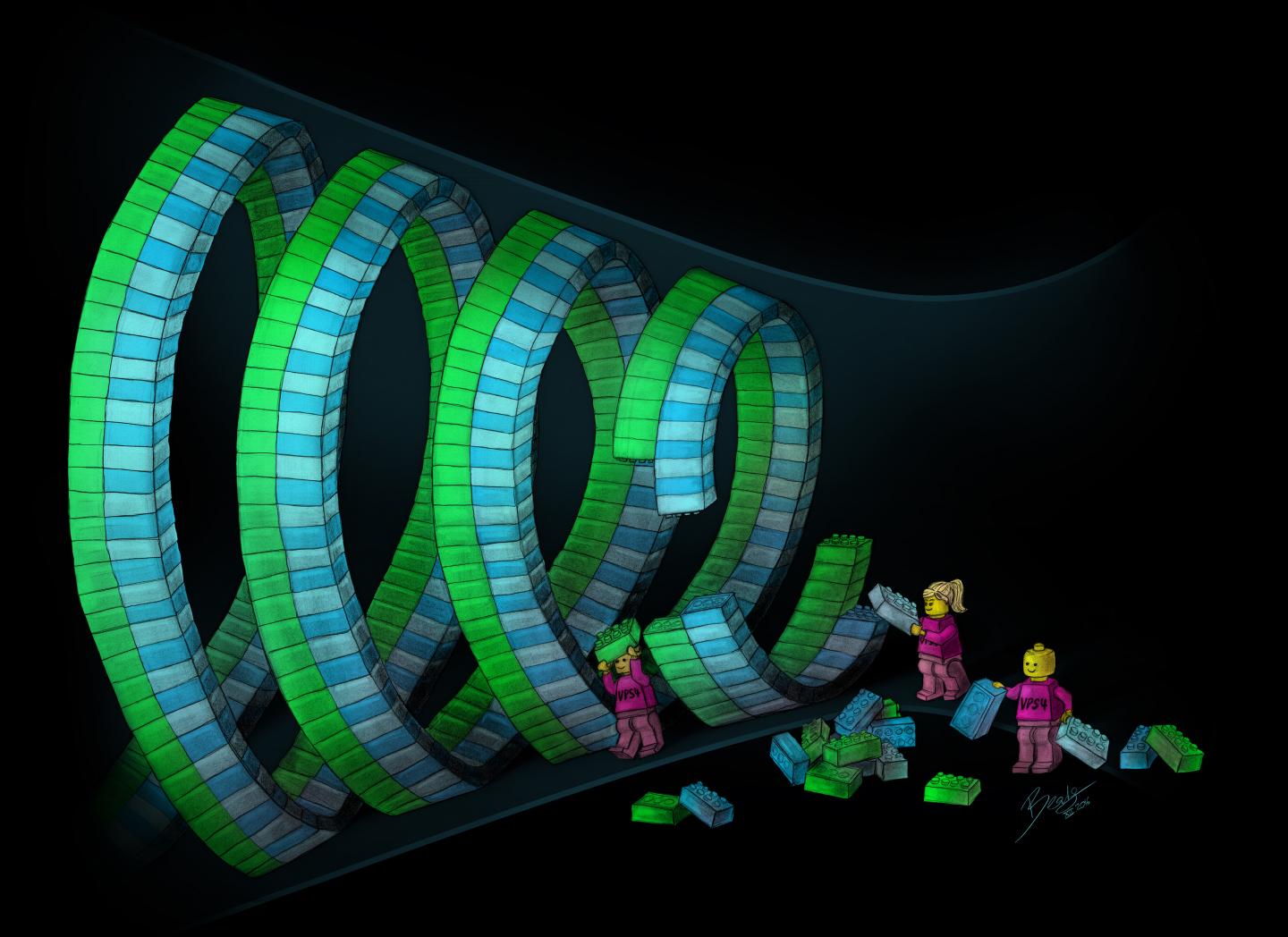
Credit: © Beata Edyta Mierzwa, BeataScienceArt.com
Cells multiply by duplicating themselves: they grow, replicate their components, and finally split into two. Many diseases are related to defective cell division; cancer is one of them. Understanding mechanisms conducting this division is therefore essential in the search for cancer treatments. Researchers at the University of Geneva (UNIGE), Switzerland, in collaboration with the IMBA- Institute of Molecular Biotechnology at the Vienna BioCenter (VBC) and the Weill Cornell Medical College in New York, have turned their attention in particular to the role of ESCRT proteins, which are responsible for severing cell membranes. These proteins assemble in spirals that gradually bring about cleavage of the membrane, spirals that are constantly renewing themselves with the help of the Vps4 molecule. Without this molecule the renewal stops, eventually preventing the membrane from being severed. This research, reported in the journal Nature Cell Biology, sheds new light on the fight against cancer and HIV, both of which depend on cell division.
In a previous research, the team led by Professor Aurélien Roux of the Department of Biochemistry at the Faculty of Sciences of the UNIGE, discovered that ESCRT proteins assemble in the form of spirals, a structure that is unique amongst the many forms created by the organism's filamentous proteins. Why this unique form? During cell division, the cell contracts at its centre to separate the two daughter cells. At the end of this stage, called cytokinesis, a very thin link remains between the cells, a tube of plasma membrane – the cell's skin – called the "cytoplasmic bridge". The spirals formed by ESCRT proteins coil around the inner surface of this tube and constrict it in order to sever it, a stage called abscission. Professor Roux's team showed that these spirals behaved like the springs of a watch, suggesting a scenario wherein the more the ESCRT proteins assembled, the more tightly they were compressed.
Research conducted simultaneously in vitro and in vivo
After discovering why these molecules assembled in spirals, the UNIGE researchers examined the dynamics of the assembly. Until now scientists have thought that they assembled like Lego blocks, the proteins being added progressively to the structure without ever leaving it. In this new study, biochemists were able to invalidate this hypothesis. To do so they joined forces with the Gerlich group at IMBA, Vienna Biocenter, to conduct the experiment simultaneously in vivo (the Viennese scientists' part) and in vitro (the Genevan scientists' part).
"On our side, we observed the dynamics of the ESCRT proteins by isolating them on a flat artificial membrane that we created using lipids, onto which we placed the ESCRT protein complexes," explains Nicolas Chiaruttini, a research scientist at UNIGE. "And contrary to what we thought, the proteins do not form a rigidly fixed spiral that is compressed; instead there is a constant renewal of proteins, creating supple, mobile spirals in constant motion." Using a new imaging technique, the team led by Simon Scheuring in New York, working in collaboration with the UNIGE team, was able to directly visualize the dynamics and flexibility of these spirals. Conducting further research, the biochemists noted that this renewal cannot occur without the Vps4 molecule, which is an integral part of ESCRT protein complexes. "Vps4 is known for disassembling molecules in polymeric structures," says Aurélien Roux. "So it is the indispensable ingredient for the severing of membranes insofar as it enables the renewal of spirals."
It is worthwhile noting that the Viennese researchers reached exactly the same conclusions. "During our observations in the cell in motion, Vps4 was revealed to be necessary for the renewal of spirals," explains Beata Mierzwa, a researcher at IMBA-VBC. More importantly, the team observed that the absence or inactivation of Vps4 inhibited cell division in 50% of cases and delayed it significantly in the other 50%. Vps4 and the constant renewal of ESCRTs appear, therefore, to be essential for abscission. "It is rare to be able to conduct experiments in vivo and in vitro simultaneously, and the fact that the results coincide firmly establishes our study."
Another way to approach cancer and HIV
Cancer is characterized by excessive multiplication of diseased cells. By elucidating the role of the Vps4 molecule in cell division, researchers have decipher mechanisms that could be targeted as new treatments that would, for instance, block ESCRT protein renewal directly, thereby preventing the proliferation of the disease. Similarly, when a cell is infected by the Human Immunodeficiency Virus, virus particles bud from the membrane, then eventually break off from it to infect other cells. The virus must also sever the cell membrane in order to be released and spread the disease–a stage that is also carried out by ESCRT proteins. Here again, targeting the Vps4 molecule could prevent the virus from leaving the infected cell.
The primary role of fundamental research is not to find new drugs for cancer or AIDS traitements, but rather, by understanding how ESCRT and Vps4 participate in cell division and virus replication, "to provide knowledge essential to treat those diseases, and clues about potential interactions between treatments", concludes Aurélien Roux.
###
Media Contact
Aurélien Roux
[email protected]
41-223-793-532
@UNIGEnews
http://www.unige.ch
############
Story Source: Materials provided by Scienmag





